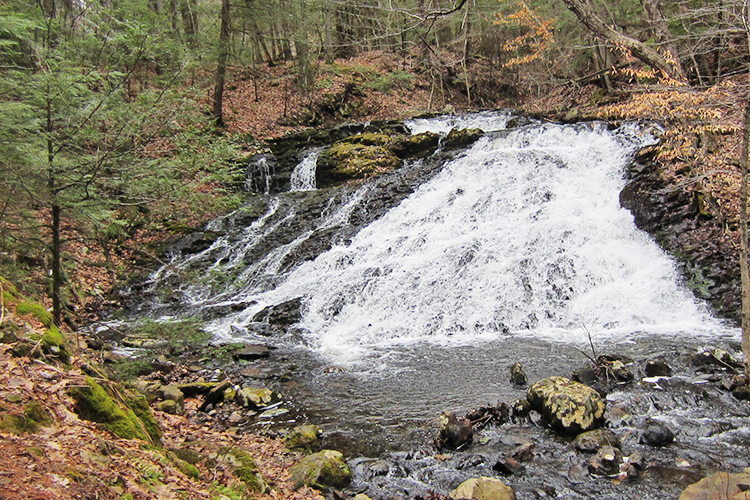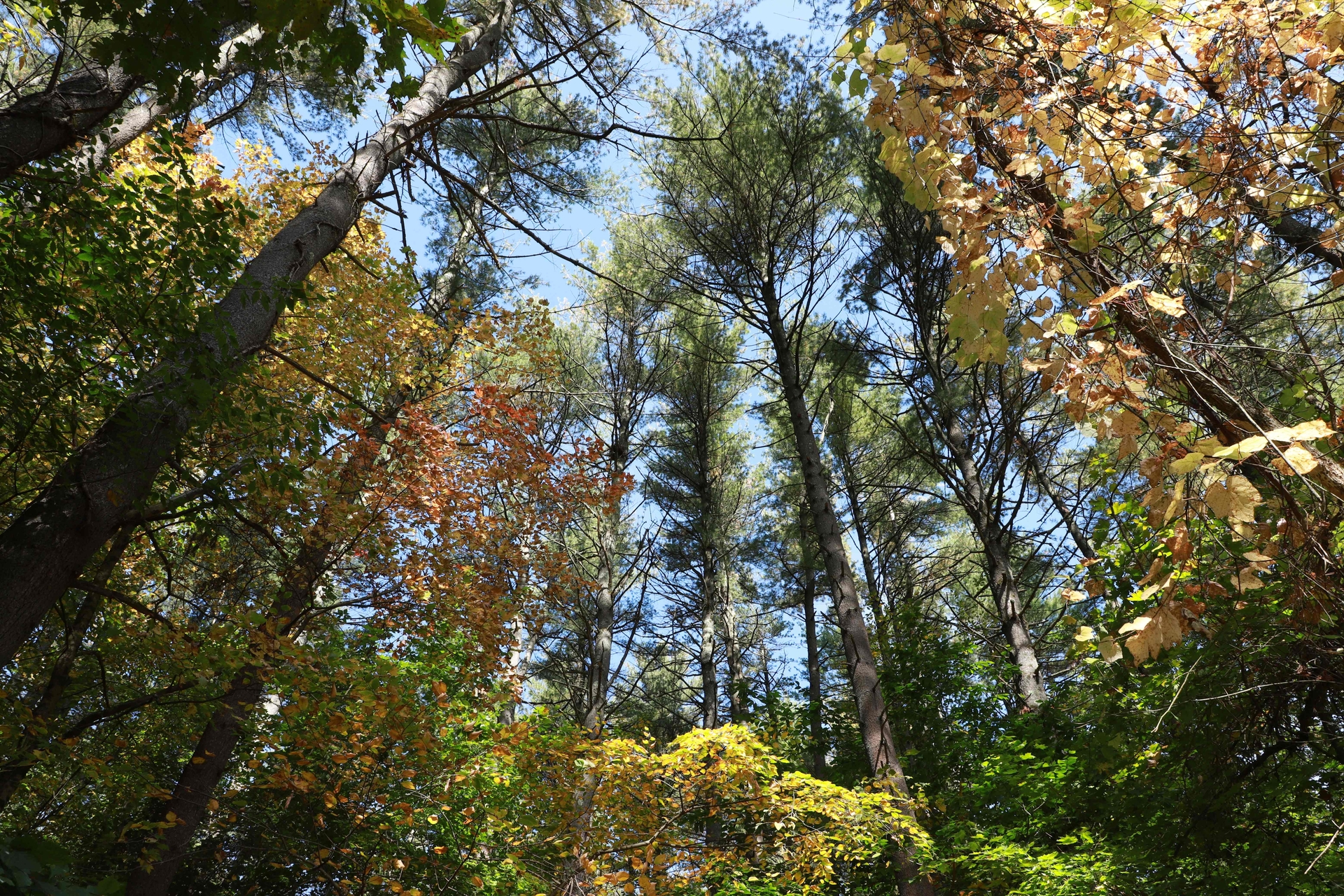The Road to 40,000 Acres. . .and Beyond
September 30, 2021
On June 29, 2021, something remarkable happened.
Bear Hole—a 1,400-acre ecologically diverse green space located in West Springfield and Holyoke—was permanently protected thanks to concerted, committed partnerships among the Town of West Springfield, the Massachusetts Department of Conservation and Recreation (DCR), and Mass Audubon.

Bear Hole Paucatuck Brook Cascades
It also marks a major milestone in an already notable 125th anniversary year: Mass Audubon now protects more than 40,000 acres from the eastern shore of Nantucket to Yokun Seat in the Berkshires, and over 200 places in between. The land Mass Audubon protects is broken up into two categories: 33,000 acres of land we own—which makes up the bulk of our wildlife sanctuaries—and 7,000 acres we protect through Conservation Restrictions (CRs), a tool used to conserve/protect land without involving a change in ownership.
Bear Hole is a great example of a CR: it will continue to be owned by the Town of West Springfield, but Mass Audubon and DCR permanently ensured that it will be managed for conservation and can never be developed.
From 0 to 40,000
Mass Audubon protected its first tract of land in 1922 at Moose Hill in Sharon, where we had been operating a bird sanctuary since 1916. Since then, we have used a sound foundation of science both to identify and evaluate conservation opportunities and to guide the ecological management of the land we steward, to protect hundreds of landscapes throughout the Commonwealth.
This approach has resulted in a portfolio of conserved lands that generate immensely valuable benefits to people and wildlife: critical habitats that help preserve biological diversity, clean air and clean water, access to nature—including its physical and mental health benefits—and response to climate change.
Bear Hole illustrates the power land conservation can have. Protecting this massive landscape ensures that wildlife have room to move in response to changing habitat, stores massive amounts of carbon and flood waters, and provides increasingly vital cooling for nearby urban areas.
Bear Hole will also provide additional opportunities to access natural settings for the nearly half a million people who reside within 10 miles of the property, including the designated Gateway Cities of Springfield, Holyoke, and Westfield, which are all located within five miles.
An Ambitious Path Forward
Massachusetts faces significant challenges—including the rapid loss of wildlife habitat, inequitable access to nature, and the threat of climate change—that deeply affect the health and well-being of our environment and our communities.
Land conservation plays a critical role in facing these issues, which is why protecting, stewarding, and providing access to natural settings has never been more important than it is right now.
Mass Audubon’s recently released Action Agenda calls for us to directly protect an additional 10,000 acres, including 20 new urban green spaces and wildlife sanctuaries, by 2026, and to lead a public-private coalition working together to ensure that 30% of Massachusetts is permanently protected by 2030.
As we move forward at an accelerated pace, accomplishments like Bear Hole inspire us to do even more to protect the nature of Massachusetts for people and wildlife. Take an interactive look at Mass Audubon’s land protection efforts over time and help us protect even more land in the future.
This article appeared in our Fall 2021 issue of Explore, Mass Audubon's member newsletter.



